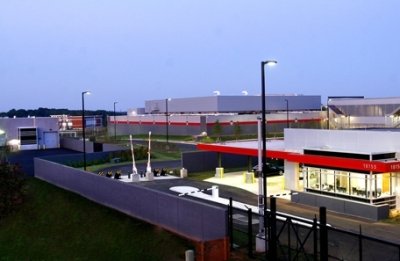Verizon has just announced the $1.4bn acquisition of Terremark to build out its cloud services delivery infrastructure platform. But even before it embarks on integrating the colocation firm, the company's data center build plans were already making the news.
As the company responsible for day-to-day management of the data centers of NasdaqOMX, and with an ambitious cloud investment plan, whatever Verizon does in the data center space will reverberate.
With the greatest respect to the good people of Laramie, Wyoming, if it were an either or choice, it is hard to image that Verizon would choose Wyoming over New York for the site of its next large-scale data center.
News emerged in January that the company has a two-year option on 160 acres of land in Laramie. As excitement grew in Wyoming at the prospect of 200 jobs and US$600m in construction investment, a Verizon spokeswoman was quoted as saying that it has 200 data centers around the world and is always looking for sites.
Meanwhile, also in mid-January, Verizon got some good news from the town of Somerset in Niagara County near Buffalo, New York when a judge threw out a lawsuit from a local resident which had claimed an environmental impact study on a proposed data center project was rushed.
The ruling was greeted enthusiastically by the local development agency and welcomed by Verizon. The New York Power Authority has already approved 25MW of hydro power for the facility. Reports say as well as the hydro power, tax breaks are also on the table for the company should it move ahead with the project.
There is no official capital figure associated with the Somerset project but US$500m has been mentioned.
For those in the data center space, Verizon’s plan to scale out its network and data center infrastructure is of paramount interest. Like every other provider, the company sees cloud as a key growth area but unlike some other carriers, Verizon moved quickly (2009) and in a big way with a data center expansion strategy designed to ensure it has the infrastructure to deliver against demand.
Not being shy about the cloud, Verizon has an ‘Everything-as-a-Service’ aspiration. This EaaS approach includes a ‘Storage-as-a-Service’ portfolio called Verizon Cloud Storage – perhaps a Wyoming site would make a very good facility for such a service. In June 2010 the firm said it launched the storage service in the US and 16 other countries. That launch is an example of how the company is building out its cloud portfolio after it first announced its cloud market entrance in mid 2009.
In August 2010, the company said it was to undertake field trials of VMware vCloud Datacenter as one of five cloud providers chosen by VMware worldwide to offer its new hybrid cloud technology. In September, it introduced Verizon Computing-as-a-Service, SMB, an online cloud service for small and medium businesses. The pay-as-you-go service is billed via a credit card. Then, in November, it announced Verizon UC&C with Microsoft Online Services a cloud-based collaboration solution.
Verizon’s DC horizon
Verizon also committed to build out its global data center footprint to expand its ‘Computing-as-a-Service’ suite. This was the big one.
Internationally, it said it would add more than 5,500 server cabinets for enterprise clients in data centers in Paris, Dublin, London, Frankfurt, Belgium, Canberra, Hong Kong and throughout the US. As a company with its own MPLS backbone, Verizon is laying down a hardware foundation to provide connected services across its aforementioned 200-strong data center footprint. Overall, data center investment was part of its US$16.8 billion to US$17.2 billion spending plan for ‘building, operating and integrating its advanced, reliable and high-performance networking and computing platforms’.
It duly opened a 3,000 sq m data center in Hong Kong in October and said that in Q1, 2011, data centers in Miami and Culpeper, Virginia, would come online for US government customers.
So compared with its rivals, Verizon looks positioned to capitalize on cloud computing. But that is not to say it is not without its challenges. Although it has 200 data centers one observer noted that the company was rumored to have had issues with meeting some customer expectations because of a lack of available data center space in the right locations.
There is no talk coming from the company about consolidating its 200 data centers in order to optimize efficiencies so the build out continues. And in and around the New York market, it would appear to be the sooner the better.
Verizon Business describes itself as operating in the following markets:
Communications: Allowing for collaboration through conferencing, contact centers, digital media, mobility services, unified communications, voice-over Internet protocol, web centers and wireless.
- IT: Making IT work smarter through cloud computing, virtualization, managed hosting, backup and restore, content distribution, web application acceleration, data center outsourcing and colocation, IT service desk, messaging and remote application management.
- Security: Securing the extended enterprise through business continuity management, data protection, forensics investigations, governance risk/compliance services, managed security services, network and application risk assessments and vulnerability management.
- Network: Connecting to customers, partners, suppliers and employees through broadband access, data center connectivity;private and IP networking, supply chain management and voice networking.
- Vertical solutions: A variety of Verizon solutions aimed at large enterprises in the education, energy and utilities, financial services, government, health care and retail sectors

